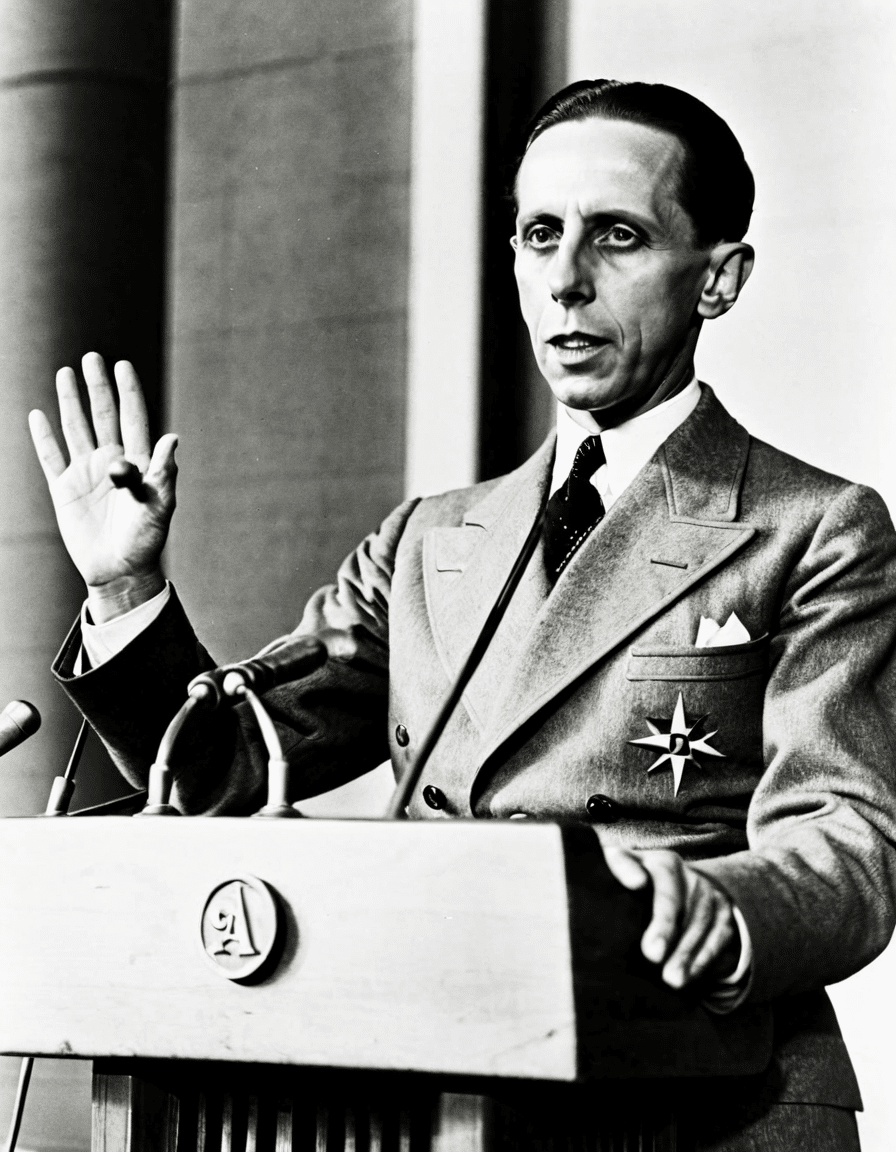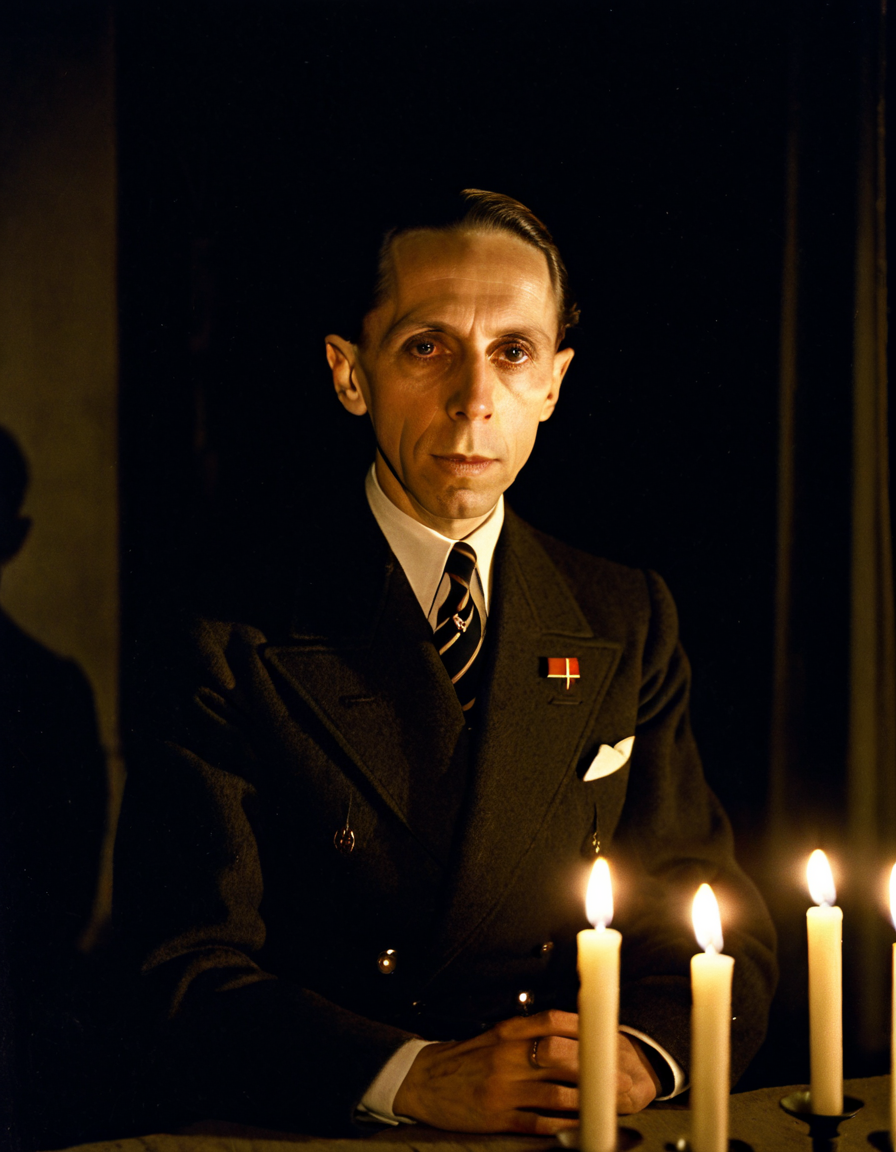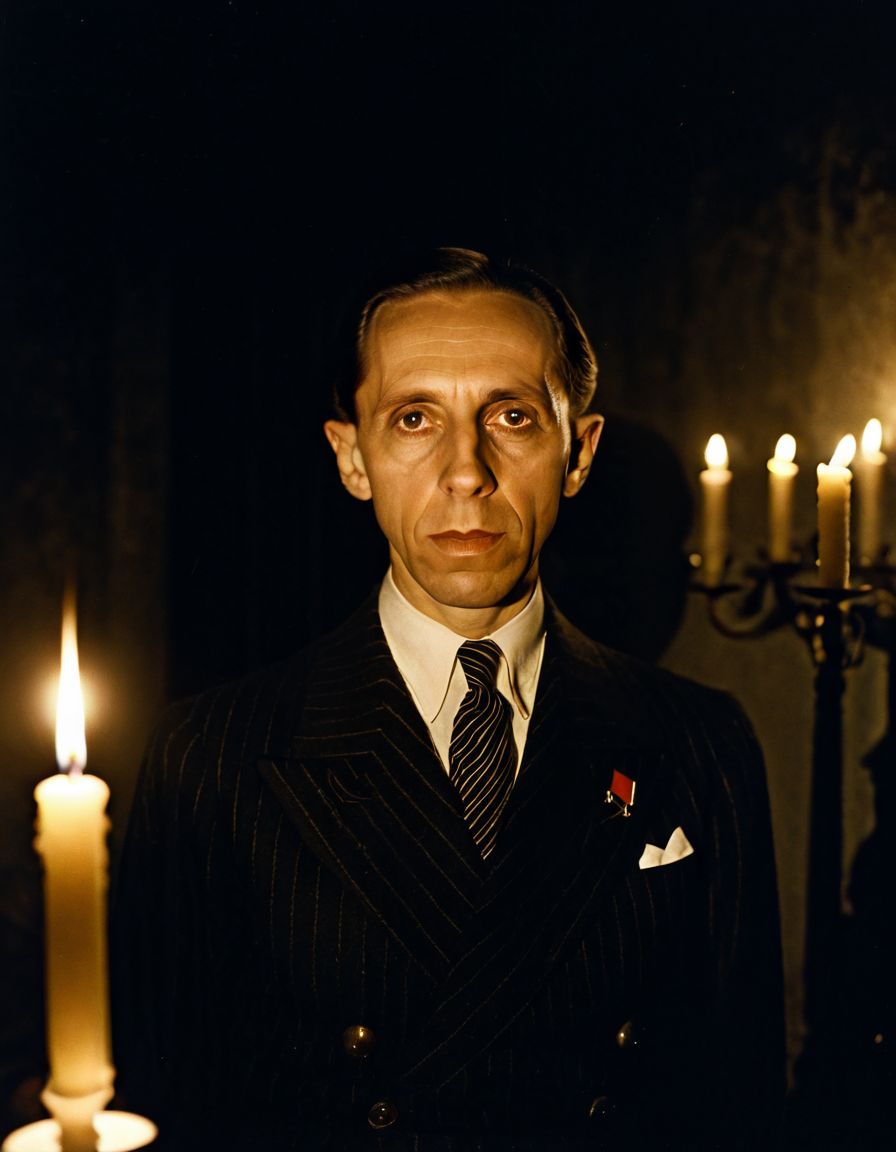Joseph Goebbels, the Minister of Propaganda for the Nazi Party from 1933 to 1945, played a vital role in shaping Nazi ideology that led to the horrors of World War II. As a master manipulator, Goebbels understood how to wield information like a weapon, curating a public narrative that not only secured Adolf Hitler’s power but also incited a collective frenzy. His techniques serve as a crucial lesson in understanding the potent influence of propaganda in shaping public perception and mass movements. Let’s take a closer look at Joseph Goebbels and his insidious methods.
The Role of Joseph Goebbels in Shaping Nazi Ideology
Goebbels was particularly skilled in exploiting emotions such as fear, resentment, and the longing for belonging. His propaganda painted a narrative that resonated with many Germans disillusioned by the socio-economic strife of the time. By fostering an “us versus them” mentality, Goebbels crafted a story that gave people a sense of purpose and identity, albeit at a terrible cost.
He knew that a well-told story could stir emotions more powerfully than facts ever could. This understanding of human psychology allowed him to manipulate public opinion and instill a dangerous allegiance to Nazi ideals. The chilling impact of his work can be seen even today, where similar tactics continue to be relevant in political discourse and advertising.

Top 5 Strategies Employed by Joseph Goebbels in Nazi Propaganda
1. Mastering the Art of Media Manipulation
Goebbels recognized early on that film, radio, and print were crucial in shaping opinions. Take the film “Triumph of the Will,” which glorified the Nazi regime in grand visuals and stirring speeches. This cinematic masterpiece didn’t just entertain; it pumped adrenaline into the Nazi narrative, echoing how big brands like Nike use emotion-driven ads to form a connection with their audience.
2. Cult of Personality
A key tactic used by Goebbels was cultivating a cult of personality around Hitler. He promoted Hitler as a near-mythical leader through carefully staged speeches and propaganda, similar to how tech companies craft their founders’ narratives. Just like Elon Musk, who is portrayed as larger than life, Hitler’s carefully crafted image drew people in and solidified loyalty to the regime.
3. Utilizing Fear and Scapegoating
Fear was Goebbels’ secret weapon. By framing Jews and other minority groups as the culprits behind Germany’s difficulties, Goebbels unified existing antisemitic sentiments while deflecting blame from the regime’s failures. This tactic mirrors the modern political practices where opposition parties are often demonized, a method that seeks to deepen divisions and rally support for a particular narrative.
4. Strategic Use of Language
Goebbels had a knack for language. He coined phrases like “the big lie,” suggesting that a lie repeated often enough can become accepted truth. This manipulation of language parallels how brands like Apple use specific jargon and compelling taglines to create an identity that resonates with consumers.
5. Censorship and Control of Information
In Goebbels’ regime, stringent censorship reigned supreme. Media outlets faced tight control to drown out dissenting voices. This monopolization of information reflects contemporary issues in various countries where restricted narratives can hinder public discourse and awareness.
The Lasting Impact of Joseph Goebbels’ Manipulation Tactics
Goebbels’ methods resonate through history, serving as a stark reminder of how easily propaganda can distort reality. The ability to incite hatred and dehumanization, when unchecked, can lead to horrifying consequences. Today’s social media landscape further illustrates how misinformation can spread like wildfire, influencing perceptions and behaviors.
As we navigate an era thick with information, the lessons from Goebbels serve as a warning. Recognizing signs of manipulative practices can empower individuals making informed choices. The past provides invaluable lessons in vigilance against misleading narratives that seek to divide rather than unite.

Joseph Goebbels in the Context of Modern Propaganda
In today’s world, echoes of Goebbels’ strategies can still be observed in political arenas and corporate marketing campaigns. Politicians often adopt techniques reminiscent of Goebbels to mobilize support or undermine opponents, engaging in selective presentation and emotional manipulation.
Corporations also utilize sophisticated advertising strategies based on psychological insights similar to those employed by Goebbels. Just as Goebbels crafted narratives that appealed to collective sentiment, brands today like Coca-Cola create campaigns that evoke similar emotional responses to foster loyalty. This ongoing relevance of Goebbels’ tactics invites us to examine how we engage with presentations of information and narratives.
Embracing Vigilance in a Propaganda-Driven World
Joseph Goebbels’ legacy underscores the necessity of being vigilant in a world saturated with information. Just as he masterfully orchestrated narratives to mislead, contemporary society faces the challenge of discerning truth amidst a barrage of misinformation.
Cultivating media literacy and critical thinking is more essential than ever. By fostering these skills, individuals can navigate the intricate web of information warfare in today’s fast-paced digital landscape. Each of us holds the power to question narratives, ensuring that the doctrines of the past remain cautionary tales rather than repeated chapters in history.
In conclusion, understanding the dark wizardry of Joseph Goebbels and his propaganda techniques makes it imperative for us to remain alert. We must actively seek clarity in the information we consume, recognizing that history has much to teach us about the perils of manipulation and the price of ignorance.
Joseph Goebbels: The Dark Wizard of Nazi Propaganda
Unraveling the Character of Joseph Goebbels
Joseph Goebbels was the mastermind behind the Nazi propaganda machine, a role that would leave a dark imprint on history. Interestingly, he was not born into an elite background; instead, he came from a modest family in Germany. His path led him to study literature and philosophy, which fueled his skills in communication and manipulation. You might say he had a flair for the dramatic, much like the rise of a crop top in fashion—unexpected yet impactful. Did you know that his speeches often incorporated emotional appeals that could sway the crowd like an unexpected wave?
As a propagandist, Goebbels understood the necessity of emotional engagement. He believed that a lie repeated often enough could become truth—this tactic is still relevant in today’s social media landscape where misinformation spreads faster than a rumor at a high school. Fun fact: just as one might feel the urgent need to know How do You Unsend a message on Iphone, Goebbels sought to control the narrative before it could spiral out of control. His cunning strategies demonstrate not only his prowess but also the danger of persuasive communication in shaping public opinion.
The Mechanisms of Influence
Goebbels wasn’t above using any tool at his disposal. He was a pioneer in utilizing film and radio to broadcast his message, often presenting Adolf Hitler as a near-mythical figure. The intricate logistics behind such campaigns remind us of modern infrastructure projects like the Gordie Howe international bridge, which require coordination and vision. Just like this bridge connects communities, Goebbels’ propaganda sought to connect ideology with the masses, albeit with catastrophic consequences.
It’s intriguing to see how Goebbels meticulously targeted youth, understanding that reaching the younger generation could yield long-term allegiance. This notion is not unlike the surprising appeal of the Yankees, who have a rich history with their World Series championships. Engaging with a younger audience is key in many aspects, whether it’s sports or politics, and Goebbels was ahead of his time in recognizing this. He crafted slogans and imagery that were both memorable and manipulative—skills that would be invaluable in today’s fast-paced digital world.
The Perils of Control
An often-overlooked aspect of Goebbels’ regime was his unchecked ambition. Much like how the collapse of Landslides can alter landscapes, Goebbels’ unchecked power reshaped the very fabric of German society and its ideologies. He pushed the boundaries of morality and ethics, using propaganda to incite hatred and justify atrocities. Tragically, the allure of power can lead to catastrophic decisions, echoing throughout history for generations.
In a world where figures like Nina Mercedez gain fame for their contributions to the arts, Goebbels reminds us of the dark side of influence and power. His relentless pursuit for ideological purity points to a crucial lesson: communication carries weight, and its misapplication can have dire repercussions. This historical reflection serves as a reminder of the importance of critical thought and responsibility in the age of information overload.




